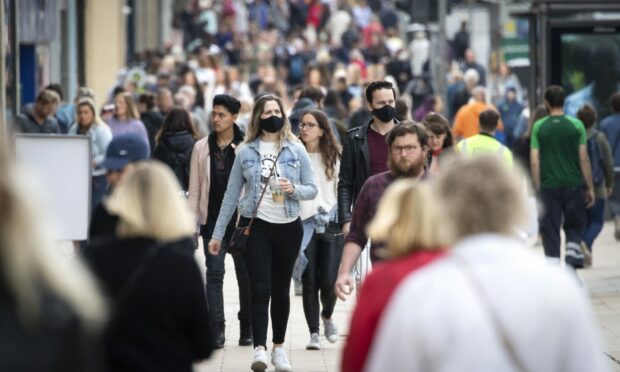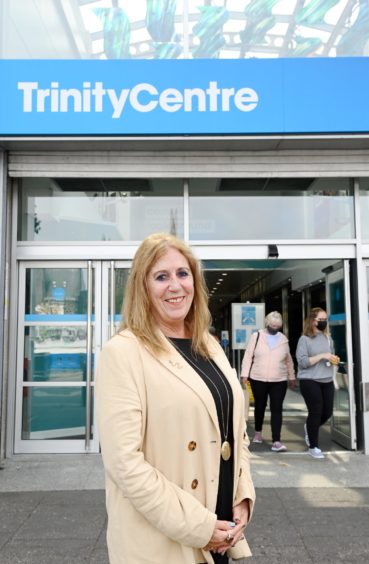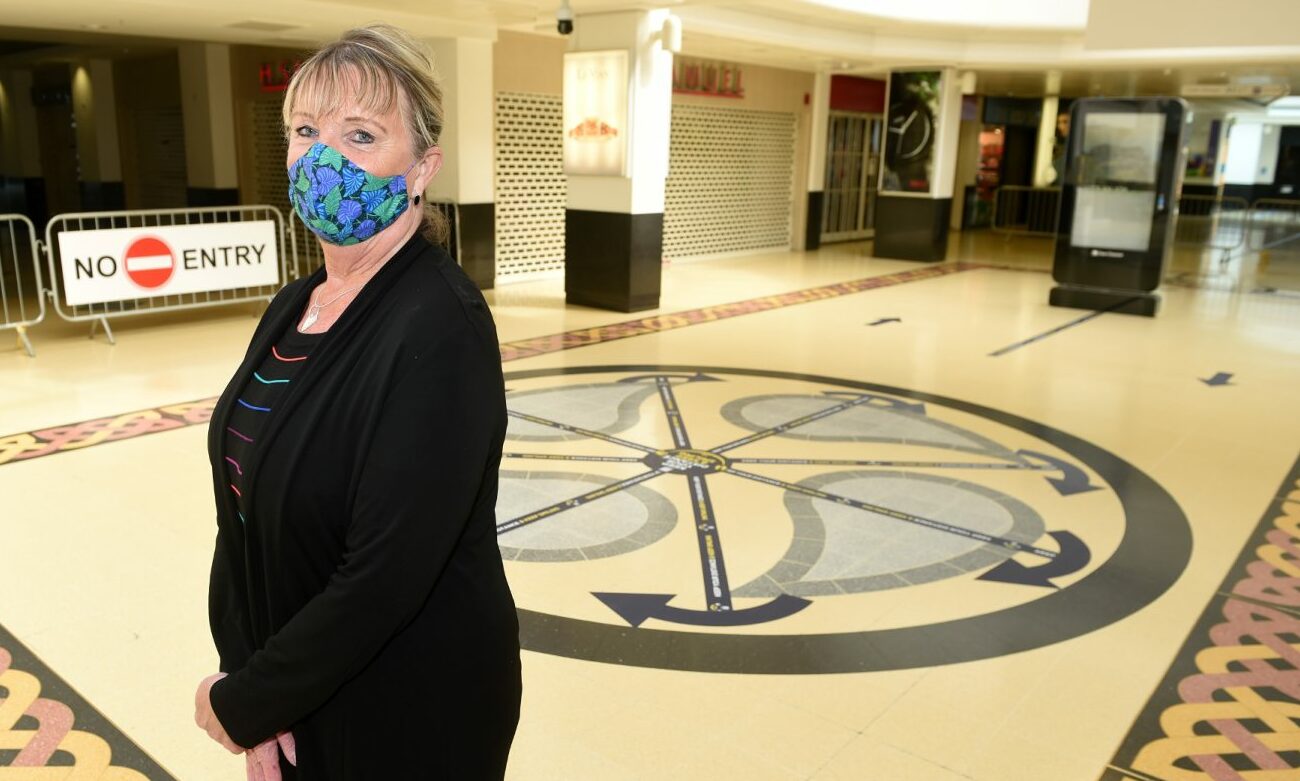Rail disruption and the cost-of-living crisis has been blamed for falling numbers of shoppers across Scotland.
The country’s shopper footfall growth has been ranked the worst in the UK compared with pre-pandemic levels, according to figures released by the Scottish Retail Consortium (SRC).
Ewan MacDonald-Russell, SRC head of policy and external affairs, said rail disruption and concern about the cost of living appear to have been factors in the decline of shoppers.
But shopping centre managers in the north and north-east believe confidence is growing again – and numbers are on the rise.
Aberdeen-based Trinity Centre manager Linda Stewart said: “Here at the Trinity we do have peaks and troughs, however, the end of the month is always busy.
“I believe customers have regained their confidence in shopping. I know with the cost of living rising, it must have some adverse effect on spending.
“However on a positive note we have seen an increase of just under 10% year-on-year and at the start of July we have seen an increase of 1,000 customers, compared to the start of June.”
I believe customers have regained their confidence in shopping.”
Linda Stewart, general manager, Trinity Centre, Aberdeen.
Over at the Bon Accord shopping centre in Aberdeen, manager Craig Stevenson said: “Retail is a challenging environment. Footfall figures continue to show improvement at Bon Accord. With a summer of activity ahead, we remain optimistic.”
Adrian Watson, chief executive of business group Aberdeen Inspired, said the Granite City was not immune from current retail challenges.
But he added: “Locally we have seen a gradual increase in returning shoppers and retail managers report that although we are not at pre-pandemic footfall numbers, people are generally spending more per visit.
“Aberdeen Inspired strongly advocates a radical review of the business rates system to one that recognises the challenges to disadvantaged ‘bricks and mortar’ businesses that are very fabric of our city centre.
“World-class events and festivals such as NuArt certainly have their place and will also drive footfall, but for longer term sustainability we now need to see bold and ambitious delivery of the city centre masterplan to attract people of all ages in to live, work, visit and study.”
Positive in Inverness too
Eastgate Shopping Centre in Inverness reported a rise of 28% in footfall for June, compared to May.
Manager Jackie Cuddy said: “On pre-Covid figures from 2019 we are still running -29% which is pretty much in line with the Scottish average.
“That said, Eastgate Centre has high conversion rates and high average spend, therefore, quite a few retailers are trading at or around 2019 sales figures.
“The message from our retailers is that sales are definitely outperforming footfall.”
Scottish footfall decreased by 15.8% in June, compared with 2019 levels, according to SRC and footfall monitor specialist Sensormatics.
Mr MacDonald-Russell said: “Retailers in the north and north-east of Scotland will be disappointed there is little sign that consumers are returning to town and city centres.
“Shoppers are yet to return in full to city high streets such as Inverness and Aberdeen, instead either choosing to shop online or to cut back on spending.
“The big worry for retailers is, with the cost of essential goods and services skyrocketing, that customers will further cut back on discretionary spending.
“That has started already and if it continues will exacerbate the already intense pressure on high street businesses.”
UK retail sales weaker
Meanwhile, the deepening cost-of-living crisis and high inflation is also being blamed for UK retail sales hitting their lowest rate since February 2021.
Total like-for-like sales in June increased by 8.4%, compared with a year ago, with an 8.8% drop in homeware sales suggesting consumers are postponing large purchases, according to the BDO High Street Sales Tracker.
But the fashion sector continued to outperform the lifestyle and homeware sectors, recording total sales growth of 15.2% – the 16th consecutive month of positive figures.
By contrast, lifestyle sales through online channels fell for the eighth consecutive month, sparking concerns that consumers are reducing their discretionary spending.
Worse to come?
British Retail Consortium chief executive Helen Dickinson said: “Rising inflation, particularly soaring energy costs, is limiting customer spending power and damaging consumer confidence.
“This is only set to worsen in October as the energy price cap rises and the colder weather increases usage.
“With many people struggling, retailers are doing all they can to support their most vulnerable customers – from expanding value ranges to offering discounts to vulnerable groups, raising staff pay and investing in lower prices for the future.”




Conversation